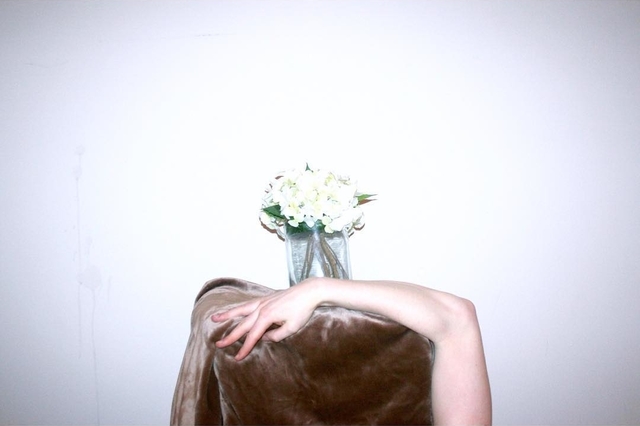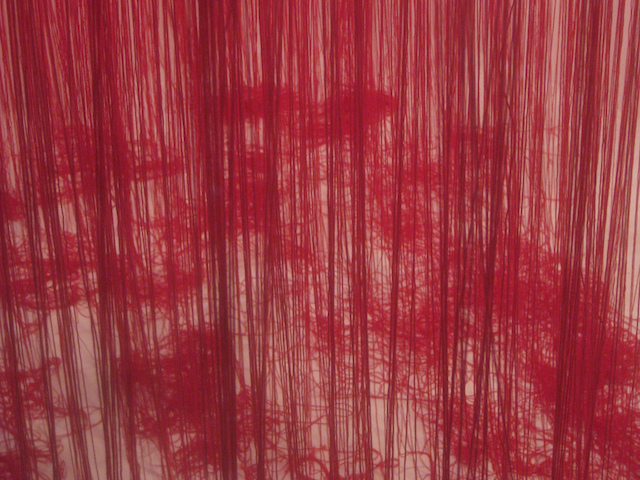What the painful process of learning Korean, the language spoken by those who love me, has taught me about facing rejection as a writer

August 3, 2016
가, 가, 가 Gah, Gah, Gah
기, 기, 기 Gee, Gee, Gee
구, 구, 구 Goo, Goo, Goo
As a child, I wrote to get away. As many lonely children do, I escaped on the page. Sometimes, a child who feels she has no agency—watching the world fall apart around her, as if every unexpected expense (a broken water heater, a leaking roof, a car that won’t start) is the equivalent of a natural disaster—finds that the only self-determination she has is inside of a book, and that the cheapest utensils she may have are pen and paper.
But, growing up, as I wrote and read more and as my English became stronger, the ties I had with my mother, who spoke only Korean, grew weaker. I pushed myself further away from her on my raft, because on that vessel, which I strung together out of the Americanness of my life, I could be free from her. I could go to college. I could get a career. I could choose a nice middle-class life in which the expenses of simple house repairs, routine doctor and dental visits, or new shoes or clothes just because they looked pretty would not ruin my life.
Who could blame a child, and the woman whom that child becomes, for wanting those things?
But only now do I know that the farther I have gone, the more unable I am to move on, as if releasing myself from one burden has only compounded the others, the rock that once drowned me was there to keep me from going adrift.
각, 각, 각 Gak, Gak, Gak
국, 국, 국 Gook, Gook, Gook
각, 각, 각 Gak, Gak, Gak
국, 국, 국 Gook, Gook, Gook
I am 34 years old and I am trying to learn Korean now in an attempt to speak to my grandmother, who is 88 and lives in Gunpo, a small city south of Seoul, where I’ll be visiting this year. I have been told that she now spends most of her day in bed, and that she has dementia. She might not even recognize me. My aunt, my mother’s younger sister, takes care of her. My grandfather died several years ago, and all of my grandmother’s other children, including my mother, live in different countries, and one of them, my uncle, is dead.
I am going to Korea because I haven’t been in almost eight years, and I would like to see my grandmother one last time. I want to say something to her although I don’t know what yet. There are so many thoughts and feelings I want to share, but they feel garbled, muddy in my mind, weighed down with the impossibility of all the feelings that I have for one woman, for everything she represents in my life.
When I was six years old, my father abandoned my mother, my sister, and me. We were left to fend for ourselves in this strange country that my mother had immigrated to, the United States, that same country in which I was born. My maternal grandparents came and lived with us in Los Angeles for a few years to help take care of my sister and me, while my mother disappeared into the work—graveyard shifts at restaurants, then long days at a swap meet clothing store—that kept the roof above our heads and the water running.
I remember watching my grandfather, an artist, turn our home’s garage into a studio for himself. I remember how he painted with the large door swung open, exposing the inside of what was mostly a storage room, now filled with canvas and paint. I remember the magic of each of the tubes, the globs of color and how he mixed them on the palette, and how he worked, dab after stroke after dab, how thoughtful, how lucid and wise.
He painted boys riding the backs of oxen, half-nude women with large bowls of freshly caught fish on their heads—rural scenes of life in what is now North Korea. Of course, as a writer, how can I not see the analogy between his work and mine? We are both making the blankness, the white, which is also the color of mourning, more tolerable, through art. We were the romantics, quiet and full of feeling, who watched animal documentaries together on PBS at night.
My grandmother was somewhat frightful to me back then. She was the practical matriarch, who cooked and cleaned and nagged, as my grandfather made beautiful things in the garage. She wore her hair in a short, dark perm, the hair of halmeonis everywhere, utilitarian, tidy and composed.
But I knew too at that age that she was there to help us, that she had sacrificed her own life in Korea to raise us in this strange land, where she had few friends and very little family.
And because she had often been so practical and so hurt and angry about my mother’s predicament, scowling at each mention of my father, that when she did smile it was the most beautiful and radiant thing in the world. Her laughter was short, but deep as if it came from her abdomen, the diaphragm. It was closer to a grunt than anything else, accompanied by a sly, knowing look.
She was smart and tough. She had to be when, as a young woman about 18 years old, she married my grandfather to avoid being taken as a “comfort woman” (a terrible euphemism for a sex slave) by the Japanese army. Growing up, I was told that my grandmother had been a singer, and that she had wanted to study music. But her artistic life was cut short when she married, and soon after she had her first child, my mother.
With her husband and children, she had made the treacherous journey from the north to what is now South Korea, during a war in which millions of Koreans died, shot, blown to bits or starved and frozen to death along the roads.
Now that my grandfather is dead, she is all that I have left of that generation. When she is gone, I will have no one with whom I have memories, a set of shared experiences, left to visit. Korea will become a place where my mother grew up, but it will no longer be where my grandparents live.
I don’t know what I even want to say to her. I’m not even certain that by the time I reach her, she will be able to recognize me—that girl who watched my grandfather paint in the garage. But at night, I am learning Korean from scratch through an instructional book. Although I already know the alphabet and some basic phrases, I am starting from the beginning, hoping the characters and the sounds will seep into me somehow. So, I recite the syllables, which is painful for me, my soft tongue against the hard teeth in my mouth.
I am now in the San Francisco Bay Area, 365 miles away from my mother in Los Angeles, and 5,600 miles away from my grandmother, who lives her life in a bed.
I speak into an empty room where no one can hear me, and no one is listening.
가족 Gahjok Family
가족 Gahjok Family
가족 Gahjok Family
Audience, or anticipation of that audience, plays an unexpected role in how and why we write. The audience is the person to whom we are addressing this love letter. It is almost impossible to not write without some anticipation of at least a small audience, even if it’s just your friends or family, as we nervously wonder what our partners or loved ones would think of our work, or sometimes we imagine entire institutions, large audiences, the thunder of applause, and the doling out of awards.
As a child who grew up in a working class family and spoke primarily English, while my mother spoke Korean, I never imagined an audience for my work except for myself. Because no one ever listened to me. That’s both a particular kind of luxury and a particular kind of sadness to have. I always imagined that if I were to die suddenly my mother would discover my work and, seeing nothing but an indecipherable scribble of English words, throw it all away. No matter how old I get and how much farther I get away from my mother, I still imagine the same thing: my mother struggling with my words for a little bit, then throwing them away.
So, when I am asked whom I imagine to be my audience, I say, “Me. Just me.” But is that really what I mean?
As a woman and writer of color, I often find myself in the living rooms of apartments having that very same conversation around the loaded “Who are you writing for?” Claire Vaye Watkins’ “On Pandering” and Marlon James’s response to that essay speak about what it means to be both outside and inside at once, and how literary and institutional expectations often result in seeking subconsciously the approval of an audience whose tastes are governed by their own peculiar set of circumstances—whiteness, maleness, middle and upper classness.
Why does it matter so much? What is at stake? There is always a social justice (or fear of social justice) underbelly to these questions, as if we all have the luxury to just envision an audience made up of whomever, and that there is no material consequence to these random “creative imaginings.” Yet, to live without stories, written by and for us, is death. To not have a story is to not have an origin. Our experiences slip, they slide away and we are unsure of where we belong, and to whom we matter.
다시 한번 Dashi Hanbeon One more time
다시 한번 Dashi Hanbeon One more time
다시 한번 Dashi Hanbeon One more time
Part of the reason why my Korean has always been so terrible is because I have always been ashamed, when given the opportunity to practice, of my unKoreanness. When I attempt to speak another foreign language, such as Spanish, which I studied for a couple years in college, the recipient of my attempts usually appreciates my ability to string together words like a highly advanced animal.
Yet, I freeze when I try Korean. All I can think about is how embarrassed I am to be a Korean who doesn’t speak Korean, and that every attempt I make will sound idiotic, and would just be an implicit declaration of how poorly I was brought up. Ultimately, I am not only ashamed of myself, but of my entire family, about our whole existence, and our ineffectiveness in the face of this brash American life of striving and working hard for the dream, to retain a little shelter for ourselves, a shelter that would protect and honor our multiple pasts and identities.
Instead, when someone at a Korean restaurant or at a supermarket says something in Korean to me, I don’t practice. All I do is wither and retreat into the English language, because I’d rather have them see me as powerful and defiant instead of childlike, vulnerable, abandoned. I’d rather have them see me as tribeless, than as the lowest member of the tribe.
But when I hear the Korean language, I want to jump in, dive into the sounds, because that is the music of those who have loved me. But I want it so badly that I am scared to fail. I’m frightened that what looks like water, might actually be a surface made of stone, and that I am not strong enough to survive the rejection of smashing into its surface.
I am convinced that neither my family nor I can survive any more brokenness, homes or bones.
성함이 얻떻게 되세요? Seonghami eotteoke dueseyo? What is your name?
성함이 얻떻게 되세요? Seonghami eotteoke dueseyo? What is your name?
성함이 얻떻게 되세요? Seonghami eotteoke dueseyo? What is your name?
For many years, I avoided sharing my writing with anyone. I didn’t submit my work to any journals or magazines, and when I did I only sent stories to the highest and most astronomically unrealistic of places. Getting published in the New Yorker would be the equivalent of me, woman with some freelance gigs, a husband and a dog, being blasted up into space to live like Matt Damon on Mars.
This was self-sabotage.
It turned out that I’d rather be unread, unaccounted for, but at least, protected to a certain extent by the loneliness that I had spun around myself. If no one read me, if no one heard me, I’d never have to face the reality, the inadequacy of my voice, which is just a part of the condition of being alive—flawed, vulnerable, full of yearning.
Again, what I saw was not the ocean for me to slip into, but surfaces of stone. All I could imagine was rejection, the impact of my body hitting the ground, rather than the dynamism, the depth of water that is art and stories.
But as I watch my mother get older, as I watch her descend into the frailties of advanced age, and as she, now retired, clings to the routine of her dance classes at the community center and her volunteer activities with the church, I recognize more and more the need to be, regardless of rank, part of something, part of something bigger than the self. That the world is just too crushing to do this alone, and that there’s no real reason to be or feel this way, that the world wants the marginalized to feel alone, to not be able to imagine an audience, because this destroys us, our aliveness in a world that belongs to us as much as it belongs to anyone else.
We disappear in a world without any complex narrative to fix ourselves upon. We become blanknesses for those in power to project on—stereotypes, villains, sidekicks—in order to remain supreme, the law of the land. We challenge this supremacy by writing our own stories. We must write them for not just ourselves, but for our past and future selves as well.
만나서 반갑습니다. Mannaseo bangapseumnida. It’s nice to meet you.
만나서 반갑습니다. Mannaseo bangapseumnida. It’s nice to meet you.
만나서 반갑습니다. Mannaseo bangapseumnida. It’s nice to meet you.
Learning Korean and writing are entwined. They are both born out of the loneliness, the limitations that I am trying to write/speak my way out of. I flounder, I fail, I sound wooden. The words ring true, the words don’t ring true.
This is the sound and sight of me speaking and writing into an empty room, where I had once believed that no one is listening. But I know that you are there. We have the same face, the same eyes, the same mouth. And I know that I am understood.
Isn’t it all an act of faith? Learning and writing language, the notion that somehow through the scramble we could hear each other, connect, that we could feel each other, that we are not alone.
My grandmother is at an age where if she were to die suddenly, even before I could see her, it would be no surprise. Yet, that realization doesn’t affect my desire to say something to her, and to learn, to try and fail, to embarrass myself, but to try again, because life is just one string of attempts to access something, that thing that is even worth dying for.
This is a love letter to my grandmother. This is a love letter to my mother, who I still imagine finding my work, and being unable to understand.
The syllables echo through time and space, from where they begin or end, no one quite knows. But they haunt us with the sound of what it is like to be alive—flawed, fluid, fluent, out of tune, inside.



